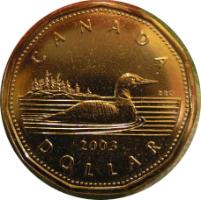WHO'S LOONIE NOW? -- For years, currency traders have largely been dismissive, not to say disparaging, about "other" dollars, among them the Canadian "loonie," New Zealand's "kiwi," and the Australian dollar. With the decline of the U.S. "greenback" and the rise in oil prices, the "other" dollars have come into their own -- and become ripe for currency speculation. On Monday, the Australian dollar (the Aussie? the kangaroo?) reached a 23-year high against its U.S. counterpart, having hopped to U.S. 91.8 cents, up from U.S. 91.1 cents Friday. With Australian interest rates widely expected to rise to 6.75 percent in November, the upward curve is likely to continue. The "kiwi," which has only been in existence as New Zealand's dollar currency since the 1930s, is also climbing fast. It traded at U.S. 76.73 cents on Monday, up from 76.38 cents Friday. Canadians were bursting with pride this week as the loonie -- so called after the bird on the Canadian coins -- equaled its best rate since 1974, U.S. $1.0492. As the loonie (a.k.a. gavia immer) soared almost as high as the American bald eagle, Canadians promptly went on a buying spree in the United States, just as they have seen their American cousins do in Canada for years. TAKE THE MONEY, PLEASE -- For some time now, Washington-based international lending institutions such as the World Bank, the International Monetary Fund and the Inter-American Development Bank have pondered questions about their future global role as a result of increasing prosperity and better economic management in many parts of their area of operation. It's not a subject bank officials like to discuss openly, but privately, for example, IDB sources say the bank is having trouble persuading some governments to accept its loans. What the IDB calls "middle income countries" such as Colombia and Peru (to distinguish them from the giants, like Brazil) have recently declined offers of funding from the European Development Bank and OPEC.
Corridors of Power: the ‘Other’ Dollars, Recovering Stolen Italian Art, and More

